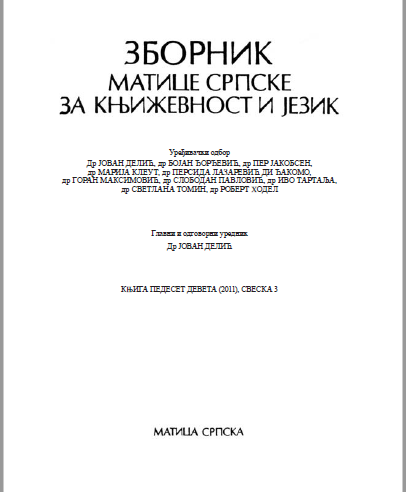ГОГОЉЕВ КОНФЛИКТ У КЉУЧУ ЕПИСТЕМОЛОГИЈЕ СМЕХА
‘GOGOL’S CONFLICT’ IN THE KEY OF EPISTEMOLOGY OF LAUGHTER
Author(s): Igor PerišićSubject(s): Epistemology, Russian Literature, Theory of Literature
Published by: Матица српска
Keywords: Gogol's conflict; Epistemology of laughter;
Summary/Abstract: On the basis of some classical texts from literature about Gogol (V. Shklovsky, D. Merezhkovsky, V. Propp, M. Bakhtin, V. Nabokov, D. Nedeljković) this paper first establishes the meaning of the syntagme ‘Gogol’s conflict’ as the lack of accord between Gogol’s prophetic intention and cosmic genius, between the desire to achieve more that reality with the text and a genius insight into the cosmic and absurd heart of reality. The whole conflict is best seen in the greatest Gogol’s piece - Dead Souls. From a simplified point of view one could say that Gogol first satirically unmasks the faults of his contemporary social reality and uses this to offer a serious plan on how to improve the world. However, this construction is unattainable because both its premises turn out to be very unstable. Dead Souls is rather a prototransgression or a humorous deconstruction of realism before realism than a supreme embodiment of a later formulated realistic poetics. In such a context even satirical moments, which are certainly present in the novel, are seen more as a satire to something other than a concrete social reality. After a short discussion of the problem it turns out that satire with Gogol is primarily epistemological, with special attention paid to the comical aspects of the sociorealistical glorification of Gogol’s satire.
Journal: Зборник Матице српске за књижевност и језик
- Issue Year: 59/2011
- Issue No: 3
- Page Range: 577-591
- Page Count: 15
- Language: Serbian

